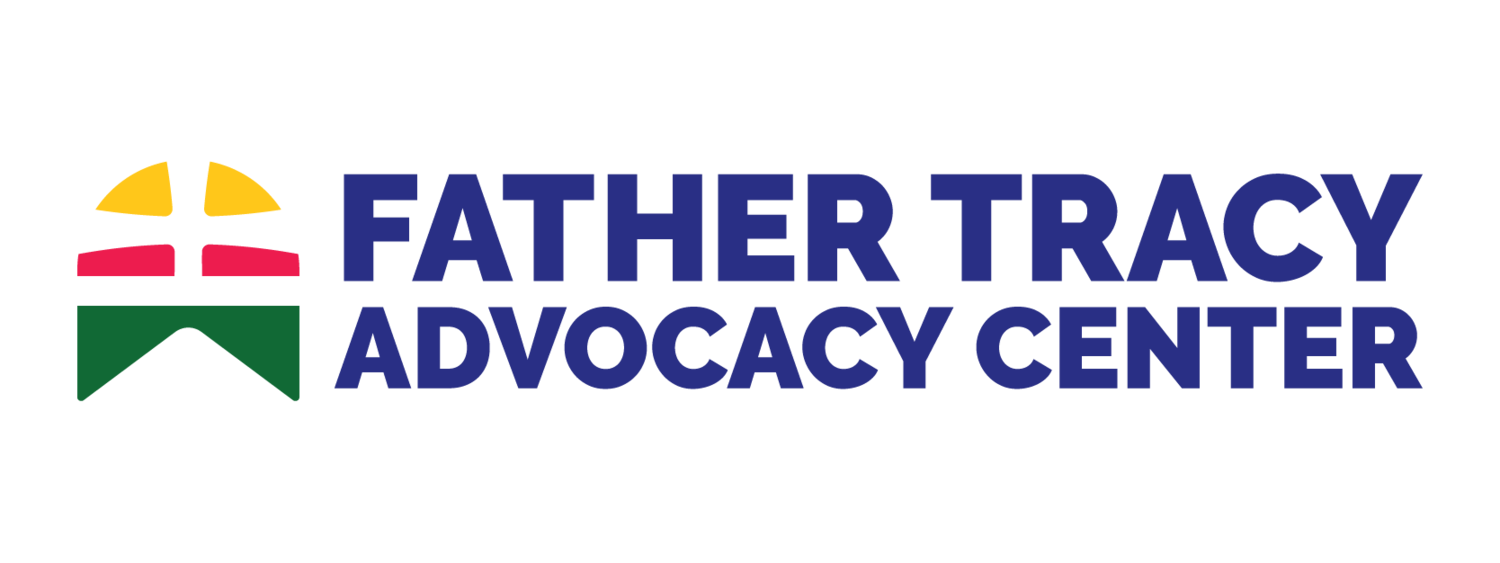Principles of Harm Reduction and the National Harm Reduction Conference
The team in Puerto Rico
The Father Tracy Advocacy Center team recently had the rewarding experience of attending the National Harm Reduction Conference in San Juan, Puerto Rico. This conference was the 13th of its kind and included 3 days of workshops, presentations, roundtable discussions, and a chance to collaborate and share with the other 3,000 attendees. This experience allowed them to learn more about harm reduction, present the work they are doing here, and hear perspectives from other organizations. People from all over the United States and abroad attended the conference in order to learn more about harm reduction and to share new ideas on steps to be taken to curb the opioid epidemic. Held by the National Harm Reduction Coalition, the conference creates spaces for community building, leadership development, and action.
History and Principles of Harm Reduction
The National Harm Reduction Coalition is an organization that was founded in 1980 after the AIDS epidemic to support those in addiction who were left vulnerable to the epidemic (National Harm Reduction Coalition 2022). Individuals came together to create grassroots effort to support those who are addicted and provide them with compassion, support, and resources. From this group, the coalition was born. Over the past 25 years, the coalition has promoted the health of those who are addicted and provided leadership opportunities and community support to reduce the negative effects of addiction. The coalition is founded on the principles of the harm reduction movement which was formed through social justice movements of the 1960’s, 70’s and 80’s including the women’s health movement, Black Panthers, the AIDs epidemic and more. Founded on the basis of providing dignity and autonomy to those who use drugs, addressing the pressing public health crisis as a social justice movement and combating the stigma, marginalization, and racialization of the crisis, the harm reduction movement seeks to better the lives of those who are addicted. The movement is based on 8 guiding principles which are listed below.
Accepts, for better or worse, that licit and illicit drug use is part of our world and chooses to work to minimize its harmful effects rather than simply ignore or condemn them
Understands drug use as a complex, multi-faceted phenomenon that encompasses a continuum of behaviors from severe use to total abstinence, and acknowledges that some ways of using drugs are clearly safer than others
Establishes quality of individual and community life and well-being — not necessarily cessation of all drug use — as the criteria for successful interventions and policies
Calls for the non-judgmental, non-coercive provision of services and resources to people who use drugs and the communities in which they live in order to assist them in reducing attendant harm
Ensures that people who use drugs and those with a history of drug use routinely have a real voice in the creation of programs and policies designed to serve them
Affirms people who use drugs (PWUD) themselves as the primary agents of reducing the harms of their drug use and seeks to empower PWUD to share information and support each other in strategies which meet their actual conditions of use
Recognizes that the realities of poverty, class, racism, social isolation, past trauma, sex-based discrimination, and other social inequalities affect both people’s vulnerability to and capacity for effectively dealing with drug-related harm
Does not attempt to minimize or ignore the real and tragic harm and danger that can be associated with illicit drug use
These principles inform the work of not only the coalition, but all harm reduction centers, including the Father Tracy Advocacy Center. These principles, and the movement, are the basis of the education and action at the conference.
Conference Takeaways
Workshops were an integral part of the conference and provided the team with educational information and best practices to bring back to the center.
One of the most informative workshops, according to the team, was one on overdoses. Knowing how to deal with an overdose is key information for anyone but especially those who live or work in areas of high drug use. In the workshop, they discussed first aid, risk factors, and preventative measures. Individuals at high risk for overdose include those who are dehydrated, those who just got out of rehab, and those who haven’t used from 24-48 hours. It is important to train the family members of those in rehab on how to administer narcan in case their loved one overdoses after leaving treatment. First aid techniques that were taught include how to safely position someone who is having a seizure and techniques on how to check for consciousness including pressing on the individual's nail beds. Overdose can affect anyone, even those who aren’t addicted. Even those who use one time are at risk because drugs can be laced with fentanyl. The distribution of fentanyl test strips is key to encourage testing and to prevent more overdoses.
“Proyecto Mujer: Implementation of Harm Reduction Strategies for a Culturally Modified, Gender Specific, Integrated Evidence Based Treatment for Latinas with Substance Use Disorders and Trauma Experiences” was a workshop attended by one of our Community Health Advocates, Ariana Alvarado. She details learning about the complex reasons for drug addiction in women who have experienced trauma. She says, “The recurring theme within the presentation was the importance of knowing that women that are going or went through trauma are the ones that are using drugs to cope with trauma and pain from their past. There needs to be more emphasis on having treatment exclusively for women so that they can have their specific needs met.” The women on La Avenida who are addicted have experienced this kind of trauma and have unique needs comparative to other populations. FTAC has completed a study on the experiences of both men and women on La Avenida called La Avenida and Latinos in Recovery in which the needs and stories of the women match what Ariana learned in this conference. Women on La Avenida and nationwide need targeted treatment in order to match their unique needs and there is a need for more trauma informed and woman based services in order to better these womens’ health and improve their overall wellbeing.
Ciara McGillivray, our Director of Operations, benefitted from a workshop based on the use of qualitative data to improve the Father Tracy Advocacy Center and the work done here. In this session, the presenter detailed the importance of keeping track of qualitative data and then using this data to improve the practices of one’s organization for daily activities including grant writing, providing services, and more. Ciara desires to bring this back to FTAC and improve the way we use data to provide services and to build better relationships with the community through our use of this data. She says of the workshop and ideas, “One thing that I thought was really important is that the workshop leaders stressed the need to present data back to our participants. … What ways can FTAC present our qualitative information back to our participants? How can we make sure our participants know that we are listening and responding to their needs? I think these are important questions to think about that will allow us to strengthen our relationship with our participants and community.” By involving the community in the information we collect and use, she and everyone else on the team desire to strengthen the relationship between the community members and the center and to continue to advocate for the community and their needs.
The team learned a lot through this conference and is so grateful for the opportunity to have attended. They were able to hear perspectives from all across the nation and have brought their new ideas back to Rochester. Through their continued education, Father Tracy Advocacy Center will continue to improve and work with the community to better the lives of those on La Avenida.
National Harm Reduction Coalition. (2022, October 31). Retrieved November 4, 2022, from https://harmreduction.org/


